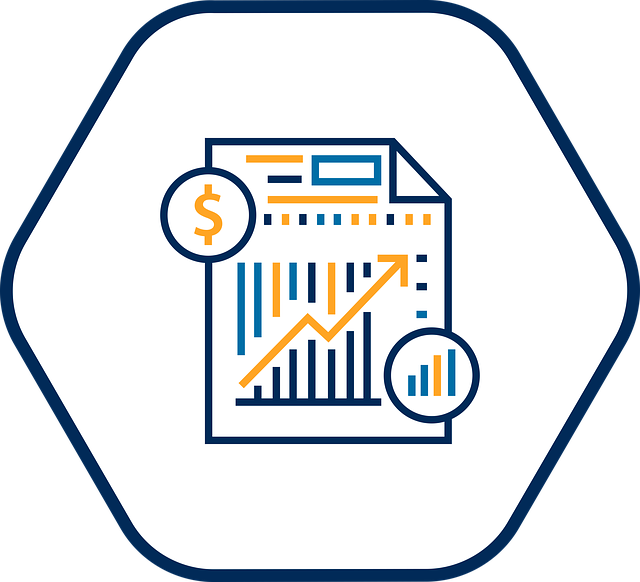Cloud infrastructure is transforming accounting practices by offering scalable, flexible solutions for efficient financial data management via hosted accounting software. This technology enables remote storage and access to critical information, eliminates on-premise servers, and provides numerous advantages like seamless integration, real-time synchronization, easy scaling, and advanced encryption. Hosted accounting software empowers CPAs with unparalleled accessibility and security, allowing them to manage client records remotely. Key factors to consider when selecting a cloud provider include security, data sync capabilities, reliability, uptime guarantees, and industry expertise. Reputable providers offer robust security measures like encryption protocols and access controls to protect sensitive financial data in hybrid cloud models. The future of accounting lies in the integration of cloud tech, with hosted accounting software becoming increasingly popular for enhanced collaboration, accessibility, and efficient services.
Cloud infrastructure is transforming how accounting firms operate, offering unprecedented efficiency and scalability. This article delves into the world of cloud-based solutions for accounting practices, exploring key aspects that drive digital transformation. We discuss the benefits of hosted accounting software, its seamless integration with existing systems, and the crucial role of choosing the right cloud provider. Additionally, we examine security concerns, compliance, and future trends shaping the intersection of cloud technology and accounting.
- Understanding Cloud Infrastructure for Accounting Firms
- Benefits of Hosted Accounting Software
- Seamless Integration: A Key to Efficiency
- Choosing the Right Cloud Provider for Your Firm
- Security and Compliance in the Cloud
- Future Trends: Where Cloud and Accounting Intersect
Understanding Cloud Infrastructure for Accounting Firms

Cloud infrastructure has become a game-changer for accounting firms, offering scalable and flexible solutions to manage financial data efficiently. By adopting hosted accounting software, CPAs can leverage the power of cloud computing, which provides a secure and reliable environment for their operations. This technology allows businesses to store and access critical financial information from anywhere at any time, eliminating the need for on-premise servers and outdated hardware.
The benefits of cloud deployment for hybrid cloud CPA firms are numerous. It enables seamless integration of accounting software with other business applications, facilitating streamlined workflows and real-time data synchronization. With SaaS for CPAs, firms can easily scale their operations up or down based on demand, ensuring optimal resource utilization and cost savings. This approach also enhances data security through advanced encryption and access controls, addressing a significant concern for professionals handling sensitive financial records.
Benefits of Hosted Accounting Software

Hosted accounting software offers numerous advantages for accounting firms looking to streamline their operations and enhance efficiency. One of the key benefits is accessibility; with data stored in the cloud, CPAs can access financial information from any location with an internet connection. This flexibility enables remote work capabilities, allowing accountants to manage client records securely without being tied to a specific workspace.
Additionally, SaaS-based accounting solutions provide robust security measures such as multi-factor authentication, ensuring that sensitive financial data remains protected in the cloud. By leveraging the power of cloud technology, accounting firms can eliminate the need for costly on-site servers and complex IT infrastructure management, resulting in significant cost savings. This shift towards hosted accounting software and SaaS for CPAs opens up new possibilities for businesses to optimize their financial processes and gain valuable insights into their operations with ease.
Seamless Integration: A Key to Efficiency

In today’s digital era, seamless integration between cloud infrastructure and hosted accounting software is a game-changer for accounting firms. By adopting SaaS (Software as a Service) solutions like those offered by CPA cloud consulting professionals, firms can streamline their operations and enhance efficiency. Virtual office CPAs benefit from this integration, as it enables them to access financial data and tools from anywhere at any time, fostering a flexible and productive work environment.
This integration not only simplifies routine accounting tasks but also facilitates advanced analytics and reporting. With real-time data synchronization, CPAs can make informed decisions quickly, improving overall accuracy and client satisfaction. Moreover, the ability to collaborate remotely on projects using cloud-based tools empowers virtual office CPAs to offer exceptional services while maintaining a competitive edge in the market.
Choosing the Right Cloud Provider for Your Firm

When selecting a cloud provider for your accounting firm, it’s crucial to consider several factors that align with your business needs and goals. Look for a provider that offers robust security measures to protect sensitive financial data in the cloud. Data sync accounting capabilities are a must-have, ensuring seamless integration between hosted accounting software and other essential tools used by your virtual office CPAs.
Additionally, evaluate the provider’s reliability, uptime guarantees, and customer support services. Consider their expertise in catering to accounting firms, as they should understand the unique requirements of this industry, including compliance with accounting standards and regulations. Choosing a provider that offers a financial data cloud environment tailored for accounting can streamline operations, enhance collaboration, and enable your firm to serve clients more efficiently.
Security and Compliance in the Cloud

In the realm of hosted accounting software, security and compliance are paramount for accounting firms considering cloud deployment. When adopting a hybrid cloud CPA model or setting up a virtual office with CPAs, ensuring data protection becomes an intricate task due to the sensitive financial information handled. Reputable cloud service providers offer robust security measures, including encryption protocols, access controls, and regular security audits. These features safeguard data from unauthorized access and cyber threats, maintaining the integrity of accounting records.
Compliance is another critical aspect, especially with regulations like GDPR and industry-specific standards. Top-tier cloud providers comply with these norms, providing tools to help virtual office CPAs meet regulatory requirements. Through secure data storage, encryption, and access management, firms can ensure their operations adhere to legal mandates while leveraging the benefits of a cloud deployment environment.
Future Trends: Where Cloud and Accounting Intersect

The future of accounting lies in seamless integration with cloud technology, as hosted accounting software continues to gain traction among firms of all sizes. By embracing cloud-based solutions, accounting professionals can expect enhanced collaboration and accessibility, enabling them to provide efficient services from anywhere at any time. This shift towards cloud adoption is not just a trend but a necessity, especially with the increasing demand for real-time data analysis and secure file sharing.
Multi-factor authentication cloud security measures play a pivotal role in this evolution, ensuring that sensitive financial information remains protected. Hybrid cloud CPA models are also expected to gain popularity, offering a balance between on-premises and remote resources. As more accounting firms consider a cloud migration accounting strategy, they will unlock opportunities for improved operational efficiency, cost reduction, and better disaster recovery plans. This integration promises a new era of agility and innovation in the accounting industry.
